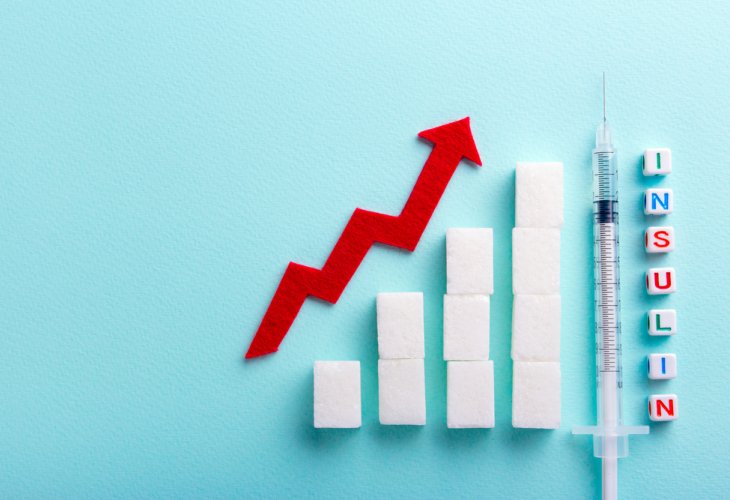New Research Finds: Type 2 Diabetes Can Be Predicted 20 Years Before Diagnosis
This breakthrough allows early intervention to prevent diabetes and its complications.
 (Photo: shutterstock)
(Photo: shutterstock)Findings from a study conducted in Japan and published in the Journal of Endocrine Society indicate that Type 2 diabetes can be predicted two decades before diagnosis. The primary advantage: knowing about potential diabetes in advance allows for preventive measures.
The study involved 27,000 participants, mostly men aged 30-50, who were not diabetic. The researchers tracked the participants' BMI from 2005 to 2016. During the study period, 1,067 individuals were diagnosed with Type 2 diabetes.
BMI increase, high fasting blood sugar levels, and insulin resistance were observed in those 1,067 individuals diagnosed with Type 2 diabetes. These changes were noted as early as 10 years before diagnosis. A similar pattern was seen in those who developed prediabetes, a condition indicating a high risk of developing Type 2 diabetes. Warning signs for prediabetes were identified in participants more than ten years before diagnosing with prediabetes.
Since most people who develop Type 2 diabetes first experience prediabetes, researchers believe that warning signs can be detected more than 20 years prior to diagnosis.
Warning signs of prediabetes and diabetes may include several factors:
- Blood Sugar Levels – Normal blood sugar levels are below 100 mg/dL. However, individuals with levels at 95 mg/dL are within the normal range but higher than average.
- Family Tendency – If a family member such as parents, grandparents, siblings, or uncles and aunts have diabetes.
- Weight – Excess weight increases blood sugar levels, so as weight increases, so does blood sugar.
- Women – A woman who had gestational diabetes during pregnancy or gave birth to a baby weighing 4 kg or more is at risk.
Dr. Hiroki Sagesaka from Izawa Hospital in Matsumoto, Japan, who led the research team, stated: "Since studies for diabetes prevention in prediabetic individuals appear to yield less long-term results, we may need to intervene much earlier, before prediabetes develops, to prevent symptoms from progressing into actual diabetes."
Many individuals with prediabetes can prevent the progression to Type 2 diabetes by adopting a healthy lifestyle, reducing sugar and processed food intake, and engaging in regular physical activity. Furthermore, continuous glucose monitoring without pricks can help determine which foods significantly affect blood sugar levels, aiding individuals in adopting healthier lifestyles.
Prof. Julio Weinstein is a senior physician at DMC Diabetes Treatment Center and head of the diabetes unit at Wolfson Hospital

